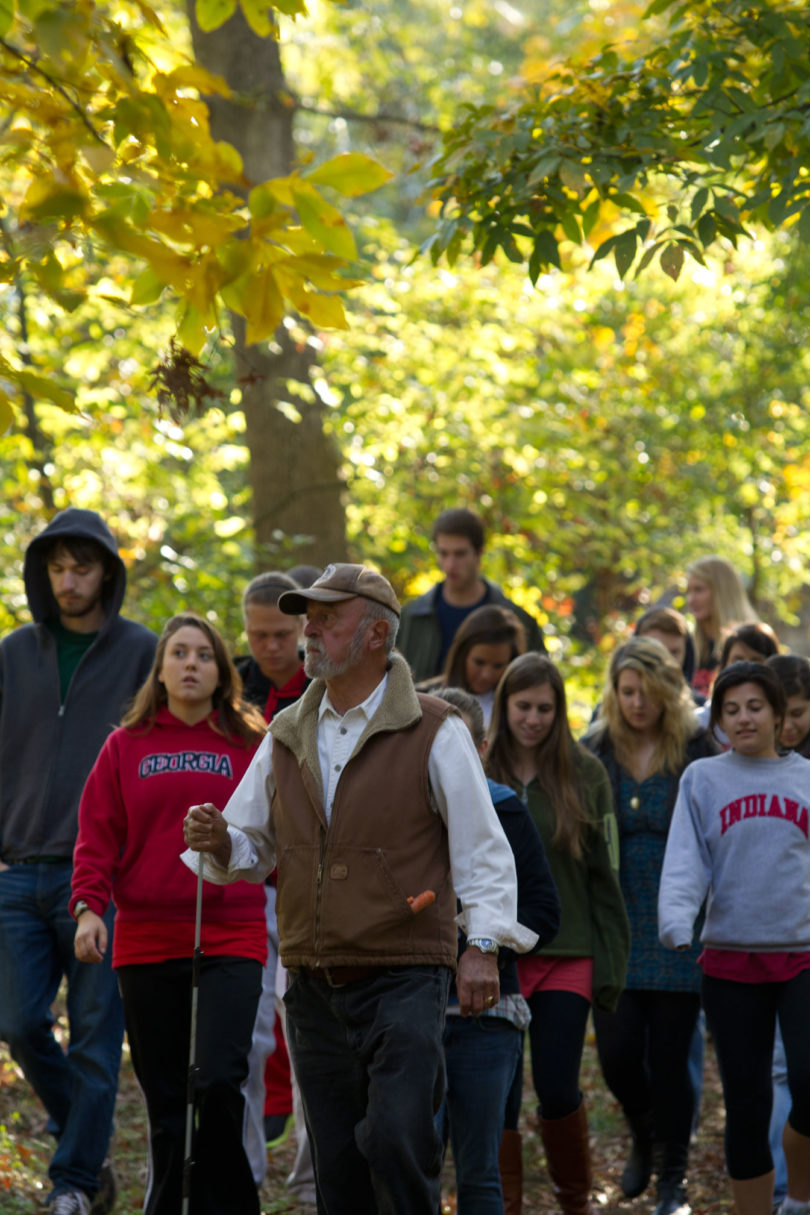Winter may be a relatively quiet season for many farmers in the Georgia Piedmont, but not for Carl Jordan. Senior research scientist emeritus in the Odum School of Ecology and the founder of Spring Valley EcoFarms, Jordan is busy preparing for his summer-long course in organic agriculture, which will be offered for the second time in 2012.
Open to all UGA students, the course combines May session and through session classes—Ecology 3700, “Ecological Agriculture and the Ethics of Sustainability” and Ecology 3710-3710L, “Practical Application of Organic Agriculture Principles,” to create an intense, hands-on learning experience.
The seven-credit course can be used as an internship for the Organic Agriculture Certificate Program.
Jordan, who retired in 2009, said the idea for the class came from his own undergraduate days when he attended a summer forestry camp.
“It was a great experience, and I wanted to recreate something similar here,” he said. “The students are at the farm three days a week from 8 a.m. to noon for 11 weeks—it’s not quite the same as living in cabins in the woods for the entire summer, but it’s something they couldn’t get in a regular semester.”
The summer-long course allows students to experience an entire growing season, planting seeds, monitoring and tending crops and harvesting them at the end of the course.
“Eleven weeks is enough time to grow crops like squash, corn, peppers, cucumbers and tomatoes,” Jordan said. “At the end of the session, the peppers and tomatoes have only started to ripen. Last summer, a lot of the students kept coming out to the farm even after the course was officially over. Ideally, we would start in March and go through November, but that doesn’t quite fit with UGA’s academic calendar.”
Along with gaining hands-on experience, students in the course learn about the theory and practice of organic agriculture in the Southeast, ranging from history, economics and ethics to soil ecology and nutrient cycling.
Students from any discipline can contact Jordan about the course.
“Some students want to go into organic farming, some want to have a garden and some just want to be aware of the issues,” he said. “Those are all good reasons to take the class.”
ON THE WEB








